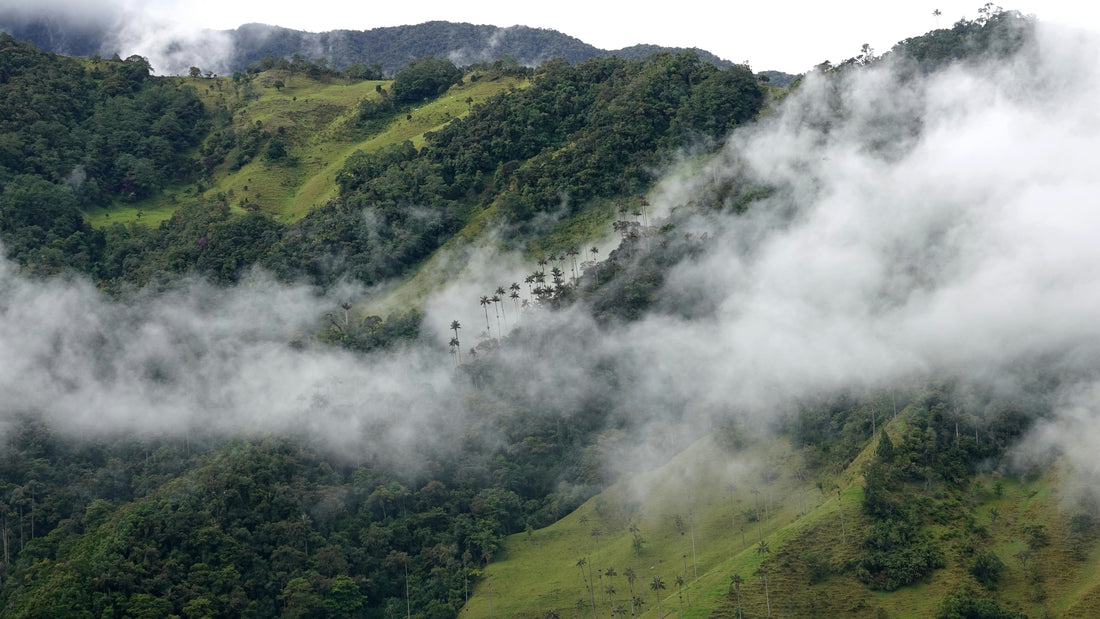
The Green Revolution: Reforestation Practices in Specialty Coffee Farms
In the world of specialty coffee, where every sip is a journey of flavors, the importance of sustainability cannot be overstated. As coffee enthusiasts, we often savor the unique notes and aromas that define our favorite brews. However, behind the scenes, a quiet revolution is taking place – one that involves the rejuvenation of our planet through the practice of reforestation in specialty coffee farms.
The Environmental Symphony
Specialty coffee farms are more than just fields of coffee plants; they are ecosystems teeming with life. Reforestation plays a pivotal role in maintaining this delicate balance. By strategically planting native trees and plants, coffee farms create biodiverse environments that support a myriad of wildlife, from insects and birds to larger mammals. This ecological symphony contributes to the health and resilience of the entire coffee ecosystem.
Erosion Control and Soil Health
One of the unsung heroes of reforestation is its ability to combat soil erosion. In many coffee-producing regions, steep slopes are common, making the soil susceptible to erosion during heavy rains. Trees act as natural barriers, preventing soil runoff and ensuring the retention of crucial nutrients. This not only safeguards the fertility of the soil but also protects water sources downstream from sedimentation, benefiting both the environment and local communities.
Climate Resilience
In the face of climate change, the shade provided by trees becomes a shield for coffee plants. Reforestation helps mitigate the impact of rising temperatures by creating microclimates within coffee farms. The shade not only protects coffee plants from extreme heat but also promotes slower, more controlled ripening of coffee cherries. This, in turn, enhances the development of nuanced flavors, a hallmark of specialty coffee.
Biodiversity Boost
Reforestation transforms coffee farms into havens for biodiversity. Native trees attract a diverse array of insects, birds, and other wildlife, creating a natural pest control system. This reduces the reliance on chemical pesticides, fostering a healthier and more sustainable farming environment. Additionally, the presence of diverse plant species contributes to the overall resilience of the ecosystem, making it less susceptible to diseases and pests.
Water Conservation
Forests are the lungs of the Earth, and they are also the kidneys. Trees play a crucial role in regulating water cycles, and this is particularly vital in coffee cultivation. Reforestation helps maintain water balance in coffee farms by preventing excessive evaporation, enhancing groundwater recharge, and regulating water flow. This not only ensures a stable water supply for coffee plants but also benefits surrounding communities and ecosystems.
Carbon Sequestration
In the fight against climate change, reforestation emerges as a powerful ally. Trees are natural carbon sinks, absorbing carbon dioxide from the atmosphere and storing it in their biomass and soil. By integrating reforestation practices, specialty coffee farms contribute to global carbon sequestration efforts. This not only helps offset the carbon footprint associated with coffee production but also aligns the industry with broader sustainability goals.
Community Empowerment
Beyond the environmental benefits, reforestation practices empower local communities. Many coffee-producing regions face challenges related to deforestation, often driven by the need for additional agricultural land. By promoting reforestation, coffee farms become champions of environmental stewardship, fostering a sense of pride and ownership among the local population. Additionally, reforestation projects create employment opportunities, further strengthening the social fabric of these communities.
The Consumer Connection
For coffee enthusiasts, embracing specialty coffee goes beyond the flavor profile; it's about a shared commitment to sustainability. When consumers choose coffee from farms that prioritize reforestation, they become integral participants in a global movement towards a greener, more sustainable future. Each cup becomes a small act of environmental stewardship, connecting coffee lovers to the broader narrative of conservation.
In conclusion, the benefits and importance of reforestation practices in specialty coffee farms extend far beyond the borders of the coffee fields. They embody a commitment to environmental stewardship, biodiversity conservation, and community empowerment. As consumers, by supporting coffee producers who prioritize reforestation, we not only savor exceptional coffee but also contribute to a flourishing and sustainable planet. The green revolution in specialty coffee farms is a testament to the profound impact that conscientious farming practices can have on our world.
